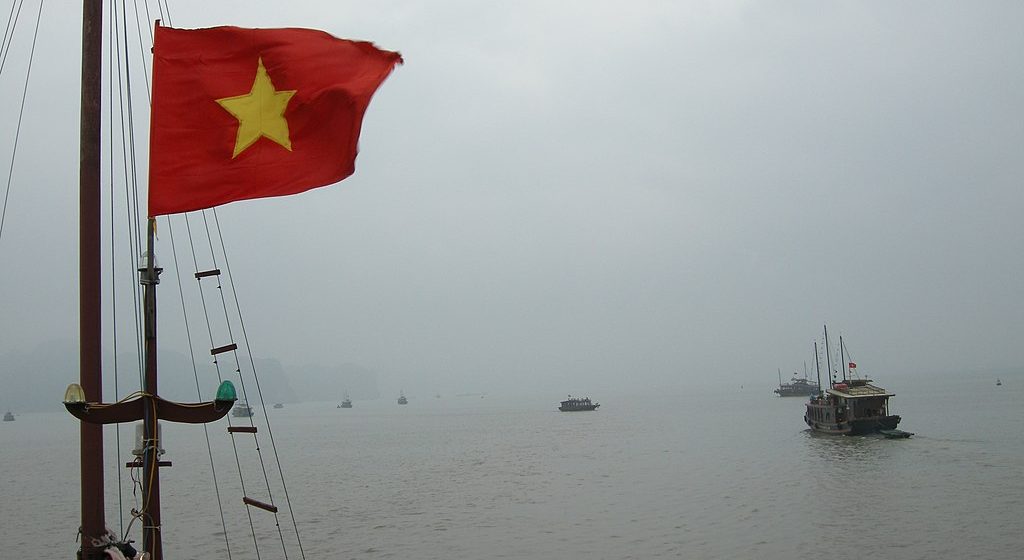Vietnam and China have sparred over competing claims in the South China Sea for nearly 50 years. But for the first time, in November 2019, Vietnamese officials publicly issued threats to initiate international legal proceedings against China—similar to the Philippine case that ended in 2016. Since November, there have been further indications that the Vietnamese government is quite serious, despite the limited success enjoyed by the Philippines when it invoked the law. In this post, I will address two questions on this issue: What motivates the Vietnamese government to consider this step at this time? And what can Vietnam gain?
For starters, at stake are development rights for the oil and gas reserves under Vietnam’s continental shelf. While the U.N. Convention on the Law of the Sea allocates resource rights in the water and under the seabed to Vietnam, out to at least 200 nautical miles from Vietnam’s shores, China stakes a “historic rights” claim to much of the same resources through its nine-dash line. This line encompasses about 80 percent of the South China Sea but has already been formally invalidated once by the arbitrators in the Philippine case. Despite its loss in court, China did not abandon its claim. Throughout 2019, Chinese government vessels harassed Vietnamese hydrocarbon survey efforts in an especially rich undersea region known as Vanguard Bank. Under the joint venture between Rosneft and Petro-Vietnam, an exploratory drilling rig began operating in the area in July 2019. China then sent its own survey vessels—under heavy coast guard escort—to demonstrate its claim. Further north, in 2011, ExxonMobil and Petro-Vietnam discovered commercially significant oil and gas deposits in Vietnam’s Block 118. The Ca Voi Xanh (Blue Whale) gas field—the area these two companies are trying to develop—lies only 50 miles off Vietnam’s coast but straddles the vast area claimed by China. A final go-ahead decision is expected sometime this year, and gaining clarity over its legal rights to resources in the region may be a key reason for Vietnam to arbitrate.
Also at stake are fishing rights in Vietnam’s 200-mile exclusive economic zone and in the waters off the disputed Paracel Islands. The Vietnamese government defies annual Chinese fishing bans that attempt to control and curb Vietnamese fishing activities in areas that overlap with China’s nine-dash line. Arbitration in this region would clarify legal rights to the resources and deflect some of the domestic pressure to protect Vietnamese fishermen. Domestic resentment is a force that must be managed carefully since, in 2014, at the height of a dispute over Chinese oil rig HYSY 981, the Vietnamese people conducted anti-China riots, assaulted Chinese in Vietnam and vandalized Chinese commercial interests.
Finally, as noted above, Vietnam disputes Chinese ownership of the Paracel Islands, a group of small but strategically important features that lie between the Vietnamese coast and China’s Hainan Island. The islands have long been claimed by Vietnam, but Chinese forces first occupied features in the Paracels in 1955 in the wake of Vietnam’s war for independence against France. In 1974 China fought a short sea battle against South Vietnamese forces to take full control over the last remaining Vietnamese positions. Since then, China has consolidated control over the islands, built up a military garrison, and harassed or arrested Vietnamese fishermen who try to continue fishing there.
Full story: https://www.lawfareblog.com/vietnam-threatens-china-litigation-over-south-china-sea


Leave a Reply